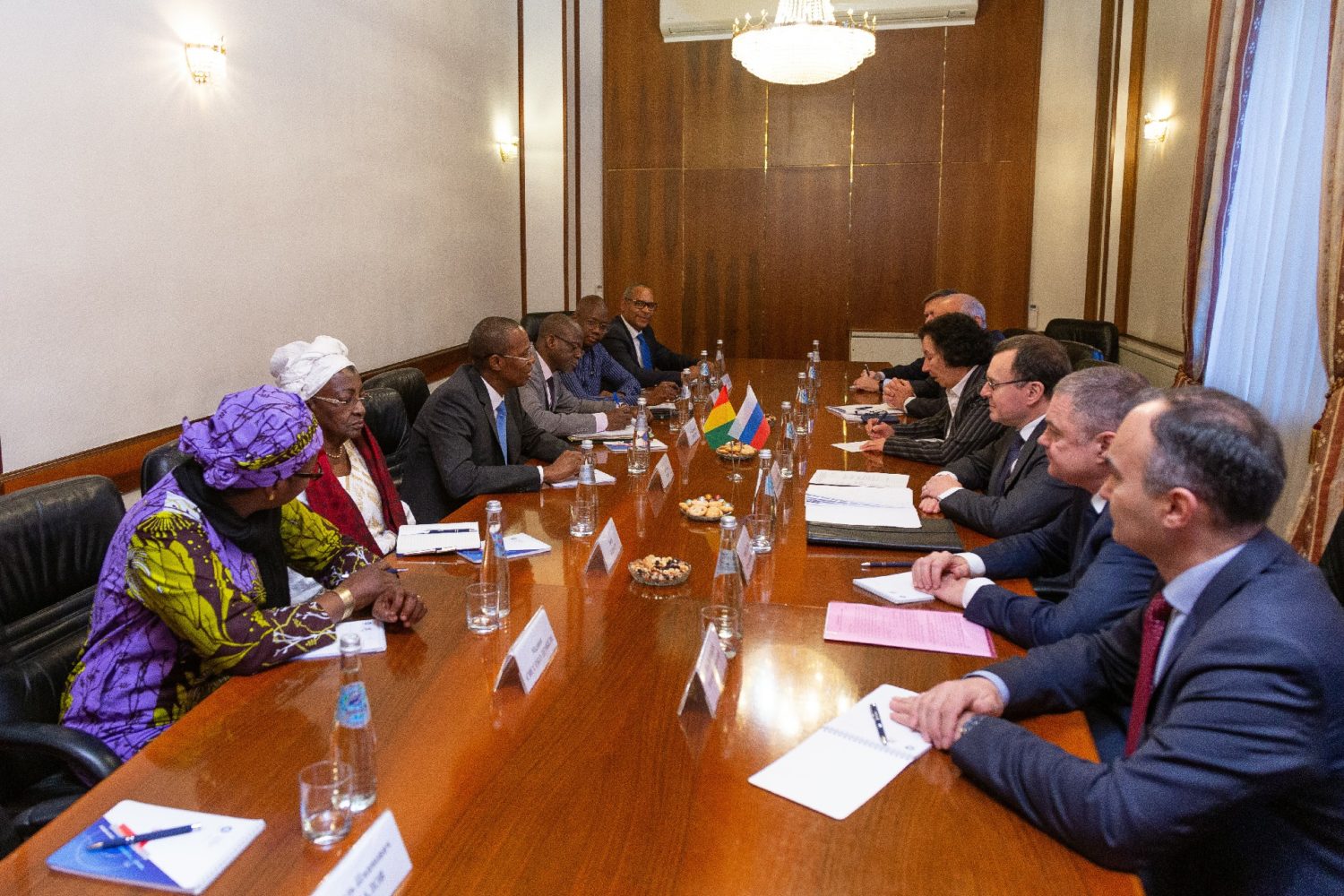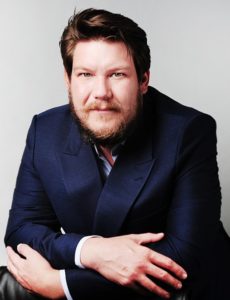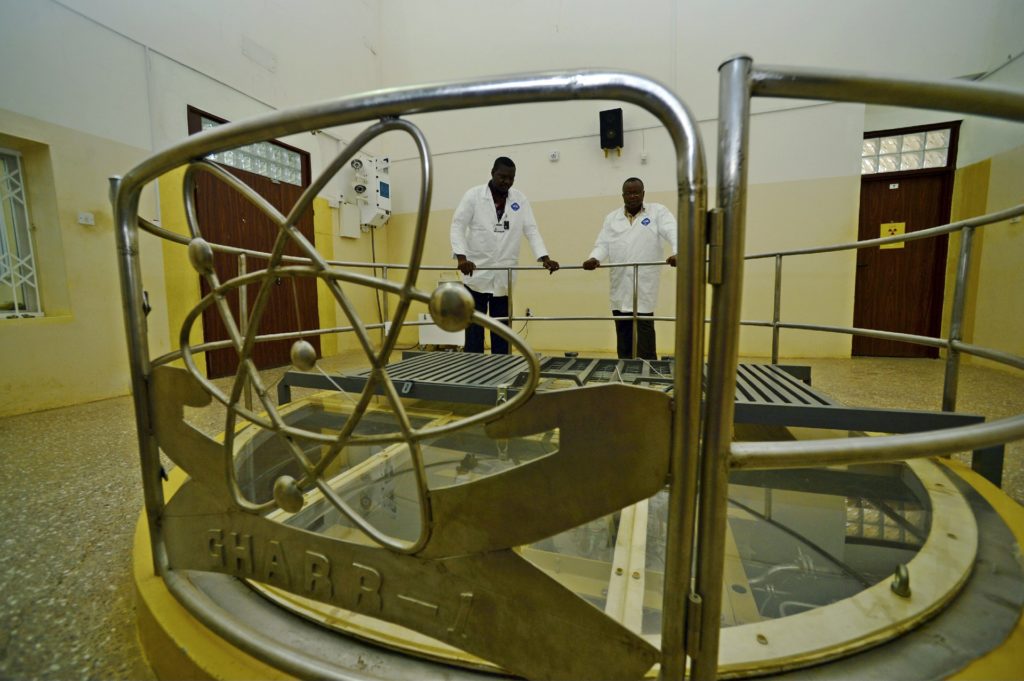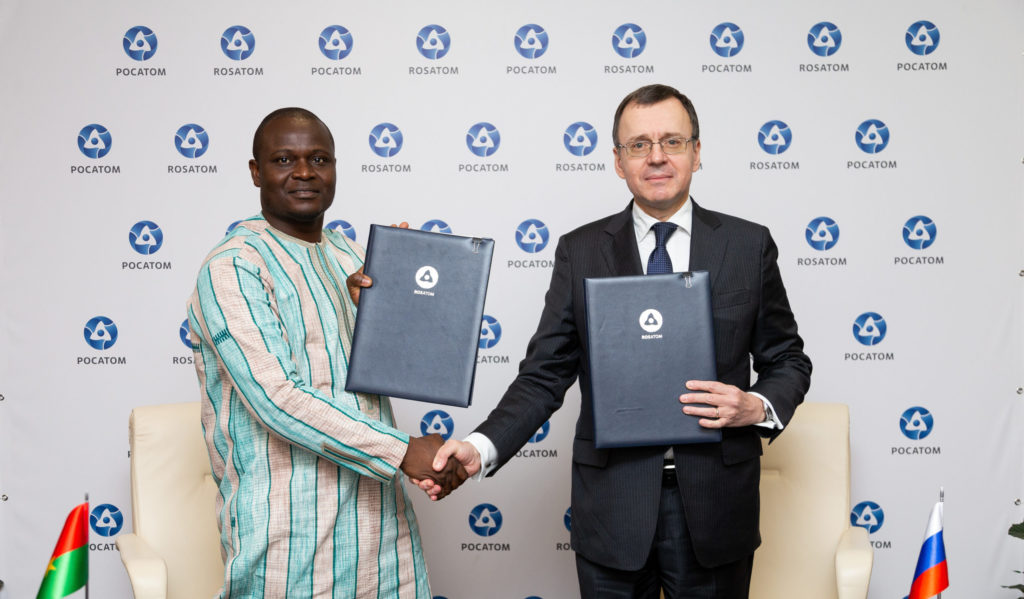
Nuclear Future for Africa
back to contentsRosatom expands cooperation with African countries. Ryan Collyer, CEO of Rosatom Central and Southern Africa, highlighted the key results of 2023 and disclosed to the Rosatom Newsletter plans for the future.

What are the key results of 2023? In which areas was cooperation conducted, what are the most important achievements?
The year 2023 proved to be a remarkable period for nuclear energy in Central and Southern Africa, we are witnessing substantial progress in tackling energy crises. Africa is undoubtedly the future, a continent marked by a swiftly growing population, flourishing economies, and rapid advancement. Various countries consistently announce ambitious plans and hopeful visions for Africa, particularly in the energy sector. However, not all of these envisioned plans materialize.
Rosatom has been actively involved in numerous projects across the continent, focusing on infrastructure development, educational cooperations and technology transfer, aiming to contribute to Africa’s nuclear energy capabilities and foster economic growth. Russia-Africa Summit 2023 was a good platform for Rosatom’s discussions on the current state of nuclear power cooperation between Russia and African states, demonstrating Rosatom’s integral role in shaping Africa’s nuclear energy future. The summit provided a platform for exploring further avenues of collaboration, underscoring Rosatom’s commitment to offering a range of nuclear solutions tailored to Africa’s diverse needs, including large-scale nuclear power plants (NPPs), Floating Nuclear Power Plants (FNPPs), and Small Modular Reactors (SMRs).
In 2023, Rosatom expanded cooperation with African countries. We have signed Memorandum on peaceful atomic energy cooperation with Burundi. We’ve also signed further cooperation agreements with Zimbabwe and Ethiopia in the field of nuclear energy. It covered creating nuclear infrastructure, safety regulation, producing radioisotopes for industry and agriculture, and training specialists. In October, MOUs with Burkina Faso and with Mali on cooperation in the field of the use of nuclear energy for peaceful purposes were signed.

In Ghana, Rosatom has expressed a strong commitment to supporting the country’s nuclear ambitions. Rosatom submitted further information as part of the Request for Financial Information (RFFi) for the Nuclear Power build programme in Ghana. Beyond this programme we are also advocating for the introduction of a FNPP fleet to boost local industries and further nuclear development in the country. Regardless of the outcome of these procedural steps, it appears that Ghana is on a promising trajectory to become a significant player in the nuclear sector imminently, and we are highly enthusiastic about this prospective. Rosatom also possesses significant mining assets in Namibia and Tanzania.
Will this cooperation continue in 2024?
Africa has always been a significant partner for Russia, and in the field of nuclear energy, this partnership holds immense potential. Our future cooperation plans with African nations are multifaceted and strategically designed to unlock mutual benefits. Firstly, we aim to assist in the development and expansion of nuclear infrastructure in various African countries, providing access to reliable and low-carbon electricity, vital for sustainable economic growth. Secondly, we are focused on enhancing skills and knowledge transfer, which includes education and training programs for African professionals in the nuclear sector. Moreover, Rosatom is keen on promoting non-power applications of nuclear technologies that offer vast benefits in sectors such as medicine, agriculture, and water management. We believe that these collaborations will not only foster technological advancement but also contribute to improving the quality of life in Africa.
What are the plans for 2024? What are the major events (business, social, etc) of the year?
We are so excited to participate in the Africa Energy Indaba in Capetown, Nuclear Business Platform in Ghana, Enlit in Capetown as well as Africa Energy Week.
But most importantly Rosatom is hosting Atomexpo 2024 in Sochi in March this year. We are looking forward to see many African partners and media representatives attending this event.
Given the diversity of African countries in terms of technological readiness and regulatory frameworks, how does Rosatom plan to tailor its nuclear solutions to meet the specific needs and capacities of different regions within Africa?
It’s imperative to highlight that our solutions are client-oriented. We listen to our clients, engaging in deep and comprehensive consultations to understand their unique needs, challenges, and aspirations. This allows us to tailor our nuclear solutions meticulously, ensuring they are perfectly aligned with the specific requirements and capacities of each client and region.
We truly appreciate and recognize the diversity and uniqueness of each African country in terms of technological readiness, regulatory frameworks, and specific energy needs. Our approach is deeply rooted in flexibility, adaptability, and a strong customer-oriented focus, ensuring that we meet and exceed the bespoke needs of each region within this vibrant continent.

For regions with substantial energy demands and more advanced infrastructure, our core product of large-scale nuclear power plants (NPPs) remains a robust and impactful solution. This solution is powerful, steady, and long-term energy supply, fostering sustained economic growth and industrial development.
Floating Nuclear Power Plants (FNPPs) are a testament to our adaptability and innovation. FNPPs provide a versatile solution, particularly beneficial for remote areas and islands, where the construction of large-scale infrastructure might not be feasible. They offer a unique blend of flexibility and accessibility, ensuring that diverse regions can access clean and reliable energy.
Small Modular Reactors (SMRs) are another key aspect of our diverse offerings. SMRs are designed with adaptability in mind, catering to regions with smaller energy demands or limited grid capacity. Their scalable nature ensures that they can be effectively integrated into various energy ecosystems, matching the specific energy needs and capacities of different areas.
Rosatom’s commitment to Africa based on innovative solutions, flexibility and client-focused energy solutions. Through our diverse portfolio we aim to illuminate the African continent with sustainable and tailor-made energy solutions.
How attractive is nuclear energy for young people? How willing are African youth to study in the industry? How is Rosatom supporting technology transfer across African nuclear market?
Technology transfer is a pivotal aspect of Rosatom’s strategy in nurturing the nuclear industry within the African continent. We believe in fostering an environment that not only cultivates technological advancements but also empowers local communities and talents.
Firstly, education is at the forefront of our capacity-building efforts. We are proud to say that over 2,000 students from Africa are currently enrolled in nuclear programs in Russia. Through these programs, we are nurturing a generation of nuclear professionals who will be instrumental in driving the nuclear industry in their respective countries with valuable knowledge and skills.
The participation and interest of young people in the nuclear industry are pivotal for the continent’s future in this field. Various initiatives and summits, such as the Africa Youth Nuclear Summit, have been organized to engage and inspire African youth, highlighting the opportunities that nuclear science and technology present for addressing critical issues facing the continent.
The African Commission on Nuclear Energy has also urged young Africans to actively participate in policy-making to leverage nuclear technology for health, education, energy, research, and security. Moreover, the participation of women and youth in the nuclear sector is seen as essential for the continent’s development. The African Union has committed to gender equality and increased youth participation through several frameworks and programs, highlighting the need to include these groups in the nuclear industry and policy-making processes. These efforts demonstrate a growing awareness of the importance of engaging young Africans in the nuclear field, not only to ensure a skilled workforce for the future but also to harness the potential of nuclear technology for sustainable development across the continent.




